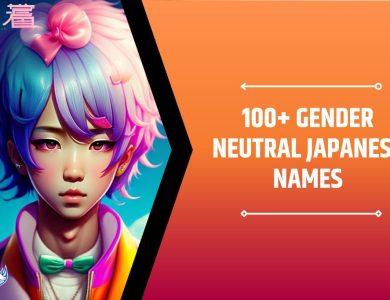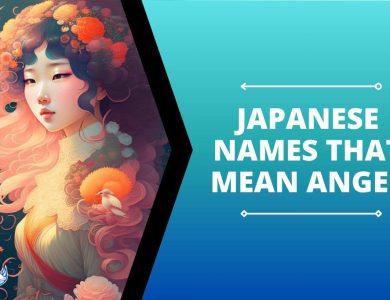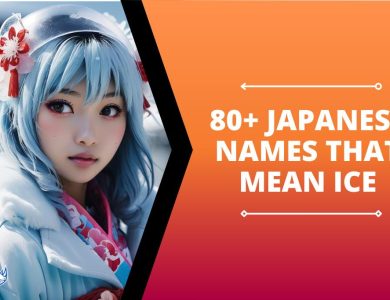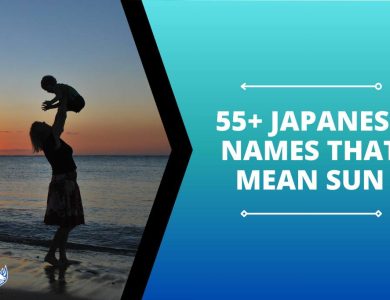80+ Japanese Names That Mean Shadow
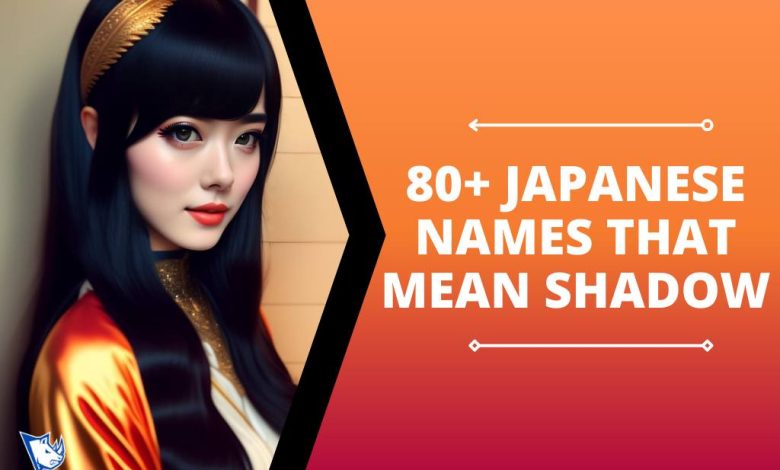
In Japanese culture, names hold a special significance and are often chosen with great care and consideration. For those who are drawn to the mystique and allure of shadows, there are a plethora of Japanese names that embody this ethereal quality. These names not only evoke a sense of mystery and depth, but also hold a unique beauty and power.
In this blog, we will delve into the world of Japanese names that mean shadow, exploring their meanings, origins, and cultural significance. Join us on this journey as we uncover the hidden gems of the Japanese language and discover the shadowy beauty that lies within.
Male Japanese Names That Mean Shadow
Discover powerful male Japanese names meaning Shadow and their intriguing origins. Find the perfect name for your little one today!
- Kage – This name simply means “shadow” and represents the idea of darkness and mystery.
- Yami – Meaning “darkness,” this name symbolizes the shadowy aspects of the world and the unknown.
- Kurayami – “Kurayami” translates to “darkness” or “gloom,” reflecting the obscure and hidden nature of shadows.
- Eikan – This name means “brilliant shadow,” suggesting a shadow that shines or stands out in some way.
- Kagen – “Kagen” signifies “shade” or “shadow,” representing the dimness or obscurity often associated with shadows.
- Kurosuke – A combination of “kuro” (black) and “suke” (boy), this name can mean “black shadow” or “shadow boy.”
- Ankokumaru – “Ankokumaru” translates to “darkness circle,” implying a shadow that encircles or encompasses.
- Kagehisa – Meaning “shadow long-lasting,” this name suggests a shadow that endures or persists.
- Yurikage – “Yurikage” can mean “swaying shadow,” indicating a shadow that moves or dances.
- Yoru – Simply “night,” this name evokes the darkness and shadows associated with nighttime.
- Kasumi – Signifying “mist” or “haze,” this name hints at the elusive and indistinct nature of shadows.
- Ankoku – “Ankoku” means “darkness” or “gloom,” emphasizing the shadowy and obscure aspects of the world.
- Hikage – “Hikage” translates to “sunlight filtering through the leaves,” suggesting dappled shadows cast by sunlight.
- Kurogiri – This name means “black mist,” symbolizing the darkness and obscurity of shadows.
- Kasukage – “Kasukage” signifies “faint shadow,” representing a subtle or barely perceptible shadow.
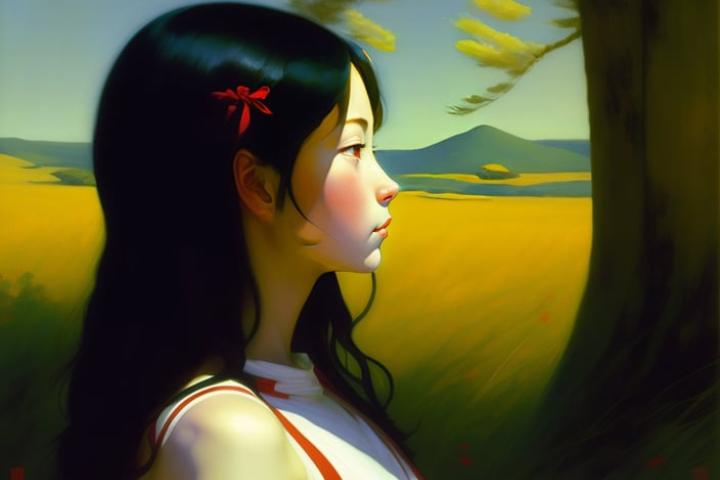
- Yumikage – Meaning “dream shadow,” this name suggests a shadowy presence that is elusive or unreal.
- Kagerou – “Kagerou” can mean “heat haze” or “shimmering air,” hinting at the wavering and indistinct nature of shadows.
- Kumo – Simply “cloud,” this name implies the fleeting and ephemeral nature of shadows.
- Kuroi – “Kuroi” translates to “black,” symbolizing the darkness and depth of shadows.
- Yamikage – “Yamikage” means “dark shadow,” emphasizing the shadowy and obscure aspects of the world.
- Yukikage – Combining “yuki” (snow) with “kage” (shadow), this name suggests a shadow cast by snow, symbolizing purity and coldness.
- Akakage – “Akakage” translates to “red shadow,” implying a shadow that is tinged with the color of blood or passion.
- Kuroishi – This name combines “kuro” (black) with “ishi” (stone), suggesting a shadow that is dark and solid.
- Yurikuro – Similar to “Yurikage,” “Yurikuro” means “swaying black,” indicating a shadow that moves or dances.
- Ankokuko – “Ankokuko” signifies “darkness child,” suggesting a shadowy presence that is youthful or innocent.
- Kageyuki – Meaning “shadow snow,” this name implies a shadow cast by snowfall, symbolizing purity and tranquility.
- Ankoku – “Ankoku” means “darkness” or “gloom,” emphasizing the shadowy and obscure aspects of the world.
- Kagenobu – Combining “kage” (shadow) with “nobu” (trust), this name suggests a reliable or trustworthy shadow.
- Kuragami – “Kuragami” translates to “dark mist,” symbolizing the darkness and obscurity of shadows.
- Kagehiro – This name means “shadow vast,” suggesting a shadow that extends far and wide.
- Kagehiko – Combining “kage” (shadow) with “hiko” (boy), this name can mean “shadow boy” or “boy of the shadows.”
- Yumekage – Meaning “dream shadow,” this name suggests a shadowy presence that is elusive or unreal.
- Yamikage – “Yamikage” means “dark shadow,” emphasizing the shadowy and obscure aspects of the world.
- Kurogiri – This name means “black mist,” symbolizing the darkness and obscurity of shadows.
- Kasukage – “Kasukage” signifies “faint shadow,” representing a subtle or barely perceptible shadow.
- Kageharu – Combining “kage” (shadow) with “haru” (spring), this name suggests a shadow associated with the season of spring.
- Kagehoshi – Meaning “shadow star,” this name implies a shadowy presence that shines or stands out like a star.
- Yumekage – Similar to “Yumekage,” “Yumekage” means “dream shadow,” suggesting a shadowy presence that is elusive or unreal.
- Yukikage – Similar to “Yukikage,” “Yukikage” combines “yuki” (snow) with “kage” (shadow), suggesting a shadow cast by snow, symbolizing purity and coldness.
- Kagehiro – This name means “shadow vast,” suggesting a shadow that extends far and wide.
Female Japanese Names That Mean Shadow
Looking for a name that exudes mystery? Explore our webpage featuring Female Japanese Names That Mean Shadow and find the perfect name.
- Kageko – This name combines “kage” (shadow) with the suffix “ko” (child), suggesting a childlike or innocent shadow.
- Yumiko – “Yumiko” can mean “dream child,” implying a shadowy presence that is unreal or fantastical.
- Kurayami – Just like its male counterpart, “Kurayami” signifies “darkness” or “gloom,” reflecting the obscure and hidden nature of shadows.
- Yurikage – Similar to the male version, “Yurikage” means “swaying shadow,” indicating a shadow that moves or dances.
- Kagen – “Kagen” signifies “shade” or “shadow,” representing the dimness or obscurity often associated with shadows.
- Kurohana – This name combines “kuro” (black) with “hana” (flower), suggesting a shadow that is dark yet delicate.
- Ankoku – “Ankoku” means “darkness” or “gloom,” emphasizing the shadowy and obscure aspects of the world.
- Kageshima – “Kageshima” translates to “shadow island,” implying a secluded or mysterious place shrouded in darkness.
- Kagehime – Combining “kage” (shadow) with “hime” (princess), this name suggests a royal or noble shadow.
- Yumikage – Meaning “dream shadow,” this name suggests a shadowy presence that is elusive or unreal.
- Yoru – Just like its male counterpart, “Yoru” simply means “night,” evoking the darkness and shadows associated with nighttime.
- Kasumi – Signifying “mist” or “haze,” this name hints at the elusive and indistinct nature of shadows.
- Kagehana – This name combines “kage” (shadow) with “hana” (flower), suggesting a shadow that is dark yet beautiful.
- Kumo – Just like its male counterpart, “Kumo” means “cloud,” implying the fleeting and ephemeral nature of shadows.
- Kasukage – “Kasukage” signifies “faint shadow,” representing a subtle or barely perceptible shadow.
- Kagerou – Just like its male counterpart, “Kagerou” can mean “heat haze” or “shimmering air,” hinting at the wavering and indistinct nature of shadows.
- Kagehina – Combining “kage” (shadow) with “hina” (doll), this name suggests a shadow that is delicate or doll-like.
- Kagefuji – This name combines “kage” (shadow) with “fuji” (wisteria), implying a shadowy presence that is dark yet graceful.
- Yurikage – Similar to the male version, “Yurikage” means “swaying shadow,” indicating a shadow that moves or dances.
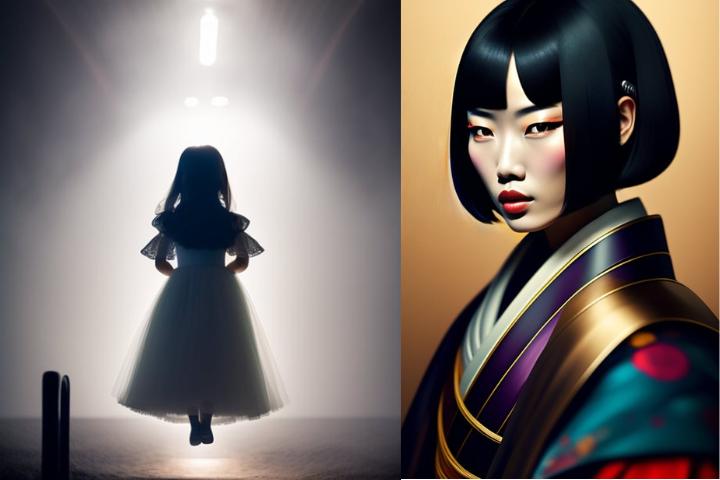
- Kuroishi – This name combines “kuro” (black) with “ishi” (stone), suggesting a shadow that is dark and solid.
- Yurikuroshi – Combining “yuri” (lily) with “kuroshi” (black), this name suggests a shadowy presence associated with the purity and beauty of lilies.
- Kagekaze – Meaning “shadow wind,” this name implies a shadowy presence that is light and breezy.
- Yumiyami – Combining “yumi” (bow) with “yami” (darkness), this name suggests a shadowy presence associated with archery or the hunt.
- Kurokaze – “Kurokaze” translates to “black wind,” symbolizing a dark and mysterious breeze.
- Kurenai – This name means “crimson” or “deep red,” implying a shadow that is colored by intense emotion or passion.
- Ankokuki – Similar to “Ankokuko,” “Ankokuki” signifies “darkness child,” suggesting a shadowy presence that is youthful or innocent.
- Kageren – Combining “kage” (shadow) with “ren” (lotus), this name suggests a shadowy presence associated with the purity and beauty of lotus flowers.
- Kasukuro – Meaning “faint black,” this name represents a subtle or barely perceptible black shadow.
- Yumihana – Combining “yumi” (bow) with “hana” (flower), this name suggests a shadowy presence associated with archery and the delicate beauty of flowers.
- Kagefu – This name means “shadow cloth,” implying a shadowy presence that is soft and flowing.
- Kurenai – This name means “crimson” or “deep red,” implying a shadow that is colored by intense emotion or passion.
- Kumo – Just like its male counterpart, “Kumo” means “cloud,” implying the fleeting and ephemeral nature of shadows.
- Kurobana – Combining “kuro” (black) with “bana” (flower), this name suggests a shadowy presence associated with the dark beauty of flowers.
- Yurikaze – Combining “yuri” (lily) with “kaze” (wind), this name suggests a shadowy presence associated with the purity and beauty of lilies and the breeze.
- Kasuhiro – Combining “kage” (shadow) with “hiro” (generous), this name suggests a shadowy presence that is expansive and all-encompassing.
- Kagerika – This name means “shadow fragrance,” implying a shadowy presence that is delicate and alluring.
- Kagehana – This name combines “kage” (shadow) with “hana” (flower), suggesting a shadow that is dark yet beautiful.
- Kurenai – This name means “crimson” or “deep red,” implying a shadow that is colored by intense emotion or passion.
- Kasukuroshi – Similar to “Kasukuro,” “Kasukuroshi” means “faint black,” representing a subtle or barely perceptible black shadow.
- Kagefuji – Combining “kage” (shadow) with “fuji” (wisteria), this name implies a shadowy presence associated with the dark beauty of wisteria flowers.
Also Read:
Final Thought
The significance and beauty of Japanese names that mean shadow are deeply rooted in their cultural and historical context. These names offer a glimpse into the poetic and nuanced understanding of shadows within Japanese language and symbolism. Whether as a representation of mystery, depth, or protection, these names evoke a sense of intrigue and darkness that adds layers to one’s identity.
Exploring these names not only opens a window into the rich tapestry of Japanese culture but also allows for a deeper appreciation of the complexities within human nature. Embrace the allure and enigma of Japanese names that mean shadow, and let them illuminate your own unique story with their whispered secrets.
